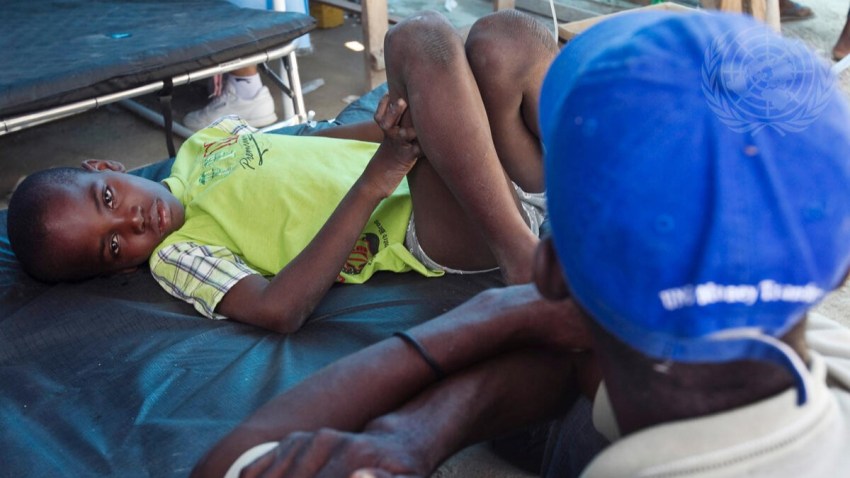With senior officials acknowledging that the potential damage from infectious disease could rival the impact of a nuclear, chemical or large-scale cyberattack, the Obama administration recently launched a new effort to respond to this growing threat. The initiative, called the Global Health Security Agenda (GHSA), is intended to build coordination across U.S. government agencies and between partner governments.
In an op-ed announcing the GHSA, Secretary of State John Kerry, Secretary of Health and Human Services Kathleen Sebelius and Lisa Monaco, a senior White House homeland security and counterterrorism official, called the need to “prevent, detect and respond” to new biological threats “not just a health challenge; it’s a security challenge as well.”
Tom Inglesby of the Center for Health Security at the University of Pittsburgh Medical Center explains that health security is broadly accepted to be a component of national security. “We’ve seen the kind of impact that global pandemics can have, including on trade, exchange and travel,” he says. Infectious diseases “can have profound consequences both within countries and on the international security landscape.”
The new initiative is “a very positive development,” says Inglesby. The GHSA “raises the profile of a number of important issues and will hopefully add momentum to some of the work that’s already going on.”
Outgoing ranking member of the House Energy and Commerce Committee Henry Waxman
also praised the new initiative in a statement, and welcomed the U.S. commitment “to work with our global partners and ensure that all nations have the capacity to prevent, detect and rapidly address disease threats.” He added, “with 80 percent of the world's nations still unprepared to deal with new pandemics, more can and should be done.”
In rolling out the GHSA, administration officials have emphasized the number and variety of actors that will be involved, both within the United States government and among partner governments. Jordan Tappero, director of global health protection at the Center for Disease Control’s Center for Global Health, told Trend Lines in an email that Health and Human Services will take the lead in rolling out the GHSA internationally, but “there is no one agency or one government that should lead alone.” The Departments of Defense, State and Agriculture “will also play important roles.” Global health security “is about addressing shared risk across countries and regions,” he added.
The United States will also engage international organizations like the World Health Organization and the Food and Agriculture Organization.
The Obama administration hopes that the GHSA can be a mechanism for building cooperation on an inherently transnational problem. Twenty-six partner countries participated in the launch event. These included not only close U.S. allies but also global players with which the United States is seeking improved relations such as China, India and Russia.
But the specific nature of international participation in the GHSA has not been finalized, and the administration hopes to secure cooperation from additional countries in the future.
One challenge associated with the health security approach is developing structures for cooperation between the health and defense communities, which have different priorities and different tools at their disposal. An additional challenge will be in identifying which health issues should be viewed through a national security lens.
Inglesby observes that the GHSA focuses in particular on infectious diseases “with the potential for major national or international consequence.” This includes both those that occur naturally as well as those that break out due to human error or bioterrorism. The GHSA “doesn’t try to directly take on all infectious disease, but the capabilities built out of GHSA should be valuable to responding to infectious diseases more broadly,” says Inglesby.
Bioterrorism has attracted particular congressional attention, especially in the wake of the 2001 anthrax attacks. During a House Committee on Homeland Security hearing on the subject held just prior to the GHSA launch,
Rep. Susan W. Brooks spoke of the “physical and psychological impacts of a bioterrorism event” and worried that some had “lost sight” of the risk.
Despite the U.S. role in launching the GHSA, Inglesby says, the administration wants it to be a truly multilateral effort. “Other countries are already committing to take on activities on the agenda, and the hope is that increasing numbers will do so. The United States wants to be part of a community of countries that drives this agenda forward.”

